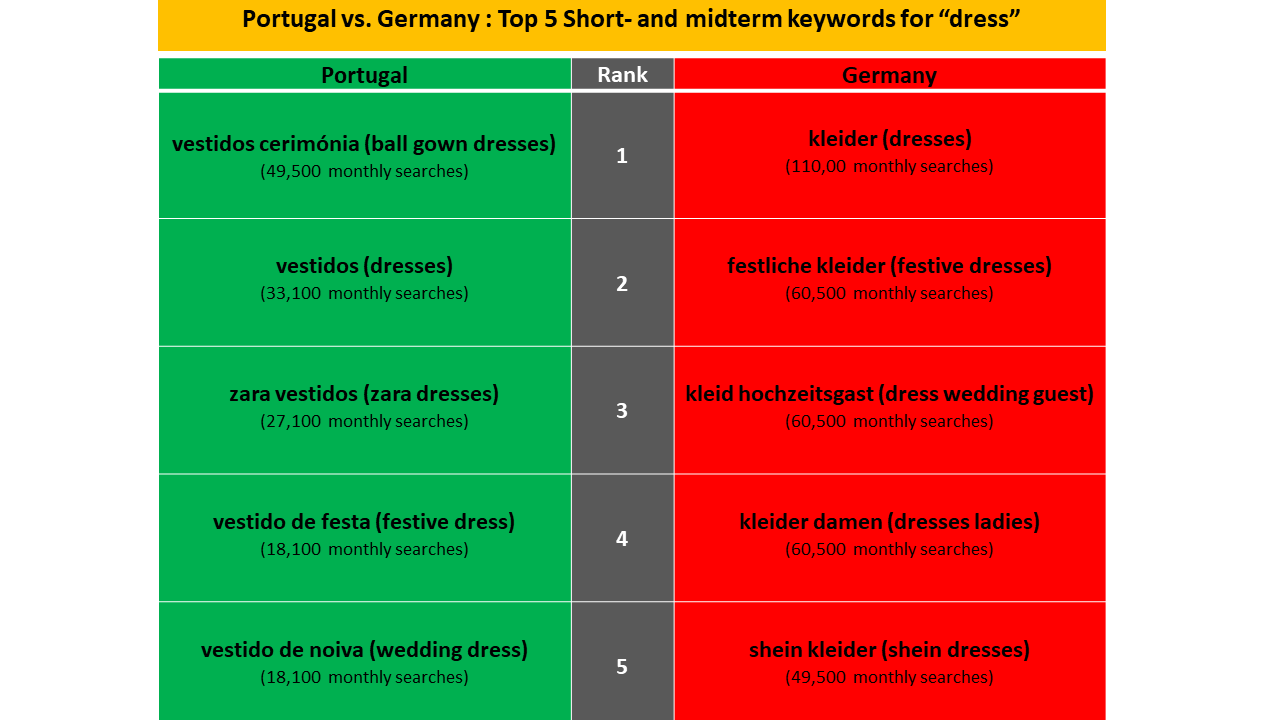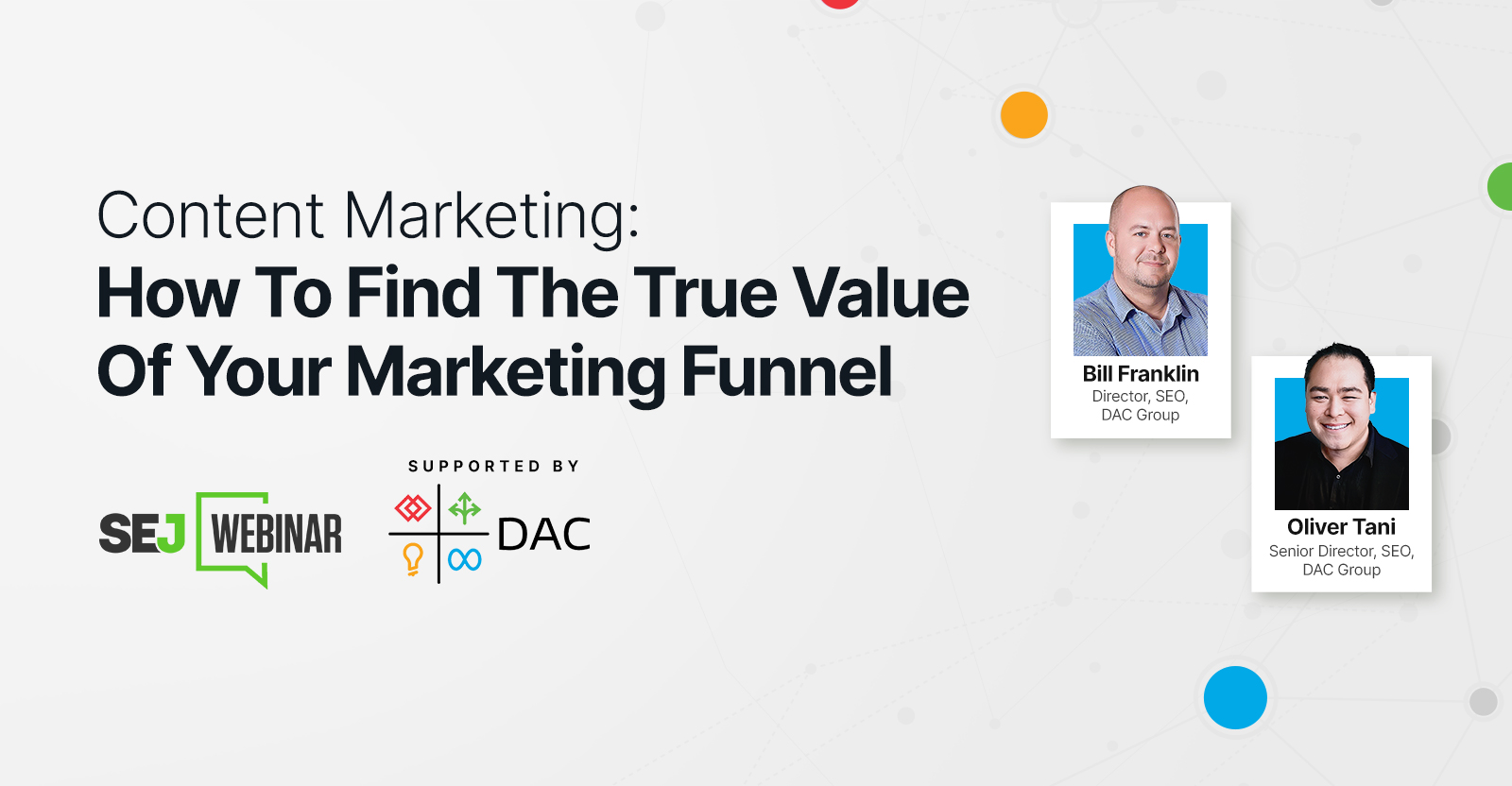SEO
Going International? Here’s What You Need To Know For Your Glocal SEO

Everything SEO is on point in your enterprise – when it comes to your home market. Time for a big decision: It’s time to go international.
You hire professionals to get your keywords translated. Everything works well at home, so direct translation is your bet. That’s a common first mistake, as your foreign audiences don’t just speak another language.
They also use language differently, search differently – maybe even for different things. Or they look for different things in the same products. This is where even your product management comes into play!
In other words: Your future international customers are not only from different countries. The cultural backgrounds of your global audiences are diverse, and their needs may be different. When it comes to content formats, for instance, your international audiences may have preferred styles and possibly even search engines.
This is where glocal SEO comes into play.
What‘s Glocal SEO?
Glocal SEO is a simple idea with an incredibly complex execution. We’re combining the words global and local because executing global SEO requires a unique local SEO strategy for each location. “Global” feels bigger and separate from local SEO, but the truth is that global SEO is made up of many different local SEO campaigns.
There’s a lot to consider when entering a new market, so let’s make sure you don’t miss out on anything!
Local Competitors: A Global Concern For Your Business
Your target audiences may already live in fruitful relationships – with very local vendors you may not ever have heard of. More likely than not, this will be somebody who’s not on your list of global or domestic competition.
It all comes down to a local content gap analysis. Local keyword research is only a part of it – albeit an important one.
Always keep in mind that this doesn’t mean a mere translation of your keywords: Each market needs its own keyword analysis from scratch, as thoroughly as you did for your home market. And with the same – local! – expertise.
“Each market needs its own keyword analysis from scratch, as thoroughly as you did for your home market.”
This also comprises an analysis of the local services available to each audience – and of their respective local ranking (which may surprise you). It can’t be stressed enough that these often rather small, very local competitors can be completely different across regions.
In other words: You need local language and local marketing expertise not just to translate your content, but also to perform competitor research. You need to understand the environment and the culture you’re moving into, and that goes much beyond word-for-word translation.
Learn From The Locals
Once you know about local competitors, dig deeper:
- What do they offer that you don’t (yet)? What are their best ranking content formats?
- Do they use videos successfully? How are those structured?
- Are they focused on picture carousels? Blog posts? Of what kind?
- And of course: What are their most successful keywords?
All of these aspects provide the most valuable information for your own strategy in each locale; audit your own content for the respective market in comparison – and be honest to yourself: Is your approach to the targeted audience really on point?
Let’s look at how different priorities are among cultures, even when just searching for a “dress”.
We compared the top five rankings of short- and midterm keywords used in Portugal vs. Germany (Semrush rounds the absolute numbers, so that they only seem to be identical on various ranks. Please also bear in mind the different sizes of the countries, thus the different scales of volume):
-
 Image created by Acolad, June 2022.
Image created by Acolad, June 2022.
Now, draw your conclusions:
- Can you proceed based on the foreseen content, just optimizing it?
- Do you need to create new, targeted content from scratch – possibly in new formats?
A Video Is A Video Is A Video? No – Do Your Glocal SEO First!
Let’s say your local expert provided you with insights indicating a need for more video content: Don’t just hop on the bandwagon and convert any written content to text bits moving on the screen.
Instead, get a deep analysis of which video formats are performing well among your target group for each respective market: Can they be more text-based, or does your regional audience prefer human interaction? What should the dress code be for the protagonists? Could you possibly need local actors?
Do you rather intend to cater a region that demands video formats with high interactivity, such as instant commenting, directly on the screen – as in China, for instance?
Do you need to go live, seizing the opportunity for flash sales? Or may you rank better with how-to videos, directly linked to your products?
The same thorough local analysis needs to be done for each format identified as more valuable for your target group – at each locale.
Consider How Audience-Specific Channels & Content Formats Are
Always keep in mind that how you leverage channels and different content formats may need to change when you go international. Once again: The marketing wisdom from home may not be applicable abroad.
Even how to present a blog post to your audiences depends on their preferences: Do you cater to a market that requires a lot of visual support?
If so, would they rather connect via photos of people they can identify with, for example – or do they prefer the logical support of diagrams? What are their cultural implications of certain colors?
Do they need information presented in very “digestible” forms such as catchy bullet points, or do you have to provide thorough reasoning to earn their trust?
Are they rooted in a competitive society that always strikes for efficiency honoring Top Ten/Five/Three lists?
Do they easily relate to information when brought across personally, via an interview? Which tone do they prefer: rather formal? Or do you blend in more naturally with an informal approach?
Glocal SEO means treating each region and audience as unique.
Localization experts can help you understand how audiences interact with different channels and formats in your target locations – even when there are cultural differences and different digital marketing frameworks to consider. That’s why you need localization experts, not just translators.
Glocal SEO Needs Both: Technology & Local Expertise
All related questions can be answered with data; but it takes expertise to filter what’s relevant, interpret it right, and convert the findings into local, successful content.
It takes the right technology; Semrush is just an example. But don’t be fooled: No technology is smarter than the person using it. This is where true experts can shine.
Thanks to their local cultural insight, they will:
- Find the information that matters for your purposes.
- Validate the data about your target market and interpret it right.
- Enrich it and predict future trends.
If your product line is a very specialized one, make sure your local SEO specialist is familiar with your product range, as well! The same goes for the local linguists who will be recreating your content for each respective market.
Why Glocal SEO Needs A Say In Your Technical Approach
Even technical approaches differ among regions. In some Asian markets, for example, you may rather completely swap your website for micro sites, integrated into the apps of leading local portals.
Other locales call for your own apps; often as a complementary option, sometimes rather as an alternative. Everything depends on the individual combination of your sociological target group, their locale, and your product.
The Wrong Payment Method Can Cost Your Business
Last but not least: even with perfectly localized content and channels, you can’t create any sales if you don’t adapt the payment options just as well! Believe it or not, neither MasterCard nor Visa work everywhere.
There are countries where you don’t even need to think about generating sales without being integrated into payment options of domestic portals that host your content. Checkout via apps has become practically mandatory in many countries – but which system does your local target group trust?
Many audiences are very particular about the payment services they use. Some of them won’t even accept anything but purchase on account!
As essential as the adaptation to local payment customs is for localization and overall business, in-house SEO departments easily tend to forget about it.
Glocal SEO Is A Matter Of Experts
The domestic SEO team does a fantastic job when comprised of the most skilled SEO experts for the home market.
But when growing across borders, there’s no “one size fits all” approach. Even the most perfect native strategy needs to be tailored, specifically for each market.
For your SEO, this means: When going international, you need to go local. With local SEO experts.
That’s what glocal SEO is all about. It takes experience and a worldwide network. Get the best experts on board – for the optimal ROI of your hard work!
SEO
Measuring Content Impact Across The Customer Journey

Understanding the impact of your content at every touchpoint of the customer journey is essential – but that’s easier said than done. From attracting potential leads to nurturing them into loyal customers, there are many touchpoints to look into.
So how do you identify and take advantage of these opportunities for growth?
Watch this on-demand webinar and learn a comprehensive approach for measuring the value of your content initiatives, so you can optimize resource allocation for maximum impact.
You’ll learn:
- Fresh methods for measuring your content’s impact.
- Fascinating insights using first-touch attribution, and how it differs from the usual last-touch perspective.
- Ways to persuade decision-makers to invest in more content by showcasing its value convincingly.
With Bill Franklin and Oliver Tani of DAC Group, we unravel the nuances of attribution modeling, emphasizing the significance of layering first-touch and last-touch attribution within your measurement strategy.
Check out these insights to help you craft compelling content tailored to each stage, using an approach rooted in first-hand experience to ensure your content resonates.
Whether you’re a seasoned marketer or new to content measurement, this webinar promises valuable insights and actionable tactics to elevate your SEO game and optimize your content initiatives for success.
View the slides below or check out the full webinar for all the details.
SEO
How to Find and Use Competitor Keywords

Competitor keywords are the keywords your rivals rank for in Google’s search results. They may rank organically or pay for Google Ads to rank in the paid results.
Knowing your competitors’ keywords is the easiest form of keyword research. If your competitors rank for or target particular keywords, it might be worth it for you to target them, too.
There is no way to see your competitors’ keywords without a tool like Ahrefs, which has a database of keywords and the sites that rank for them. As far as we know, Ahrefs has the biggest database of these keywords.
How to find all the keywords your competitor ranks for
- Go to Ahrefs’ Site Explorer
- Enter your competitor’s domain
- Go to the Organic keywords report
The report is sorted by traffic to show you the keywords sending your competitor the most visits. For example, Mailchimp gets most of its organic traffic from the keyword “mailchimp.”


Since you’re unlikely to rank for your competitor’s brand, you might want to exclude branded keywords from the report. You can do this by adding a Keyword > Doesn’t contain filter. In this example, we’ll filter out keywords containing “mailchimp” or any potential misspellings:


If you’re a new brand competing with one that’s established, you might also want to look for popular low-difficulty keywords. You can do this by setting the Volume filter to a minimum of 500 and the KD filter to a maximum of 10.


How to find keywords your competitor ranks for, but you don’t
- Go to Competitive Analysis
- Enter your domain in the This target doesn’t rank for section
- Enter your competitor’s domain in the But these competitors do section


Hit “Show keyword opportunities,” and you’ll see all the keywords your competitor ranks for, but you don’t.


You can also add a Volume and KD filter to find popular, low-difficulty keywords in this report.


How to find keywords multiple competitors rank for, but you don’t
- Go to Competitive Analysis
- Enter your domain in the This target doesn’t rank for section
- Enter the domains of multiple competitors in the But these competitors do section


You’ll see all the keywords that at least one of these competitors ranks for, but you don’t.


You can also narrow the list down to keywords that all competitors rank for. Click on the Competitors’ positions filter and choose All 3 competitors:


- Go to Ahrefs’ Site Explorer
- Enter your competitor’s domain
- Go to the Paid keywords report


This report shows you the keywords your competitors are targeting via Google Ads.
Since your competitor is paying for traffic from these keywords, it may indicate that they’re profitable for them—and could be for you, too.
You know what keywords your competitors are ranking for or bidding on. But what do you do with them? There are basically three options.
1. Create pages to target these keywords
You can only rank for keywords if you have content about them. So, the most straightforward thing you can do for competitors’ keywords you want to rank for is to create pages to target them.
However, before you do this, it’s worth clustering your competitor’s keywords by Parent Topic. This will group keywords that mean the same or similar things so you can target them all with one page.
Here’s how to do that:
- Export your competitor’s keywords, either from the Organic Keywords or Content Gap report
- Paste them into Keywords Explorer
- Click the “Clusters by Parent Topic” tab


For example, MailChimp ranks for keywords like “what is digital marketing” and “digital marketing definition.” These and many others get clustered under the Parent Topic of “digital marketing” because people searching for them are all looking for the same thing: a definition of digital marketing. You only need to create one page to potentially rank for all these keywords.


2. Optimize existing content by filling subtopics
You don’t always need to create new content to rank for competitors’ keywords. Sometimes, you can optimize the content you already have to rank for them.
How do you know which keywords you can do this for? Try this:
- Export your competitor’s keywords
- Paste them into Keywords Explorer
- Click the “Clusters by Parent Topic” tab
- Look for Parent Topics you already have content about
For example, if we analyze our competitor, we can see that seven keywords they rank for fall under the Parent Topic of “press release template.”


If we search our site, we see that we already have a page about this topic.


If we click the caret and check the keywords in the cluster, we see keywords like “press release example” and “press release format.”


To rank for the keywords in the cluster, we can probably optimize the page we already have by adding sections about the subtopics of “press release examples” and “press release format.”
3. Target these keywords with Google Ads
Paid keywords are the simplest—look through the report and see if there are any relevant keywords you might want to target, too.
For example, Mailchimp is bidding for the keyword “how to create a newsletter.”


If you’re ConvertKit, you may also want to target this keyword since it’s relevant.
If you decide to target the same keyword via Google Ads, you can hover over the magnifying glass to see the ads your competitor is using.


You can also see the landing page your competitor directs ad traffic to under the URL column.


Learn more
Check out more tutorials on how to do competitor keyword analysis:
SEO
Google Confirms Links Are Not That Important

Google’s Gary Illyes confirmed at a recent search marketing conference that Google needs very few links, adding to the growing body of evidence that publishers need to focus on other factors. Gary tweeted confirmation that he indeed say those words.
Background Of Links For Ranking
Links were discovered in the late 1990’s to be a good signal for search engines to use for validating how authoritative a website is and then Google discovered soon after that anchor text could be used to provide semantic signals about what a webpage was about.
One of the most important research papers was Authoritative Sources in a Hyperlinked Environment by Jon M. Kleinberg, published around 1998 (link to research paper at the end of the article). The main discovery of this research paper is that there is too many web pages and there was no objective way to filter search results for quality in order to rank web pages for a subjective idea of relevance.
The author of the research paper discovered that links could be used as an objective filter for authoritativeness.
Kleinberg wrote:
“To provide effective search methods under these conditions, one needs a way to filter, from among a huge collection of relevant pages, a small set of the most “authoritative” or ‘definitive’ ones.”
This is the most influential research paper on links because it kick-started more research on ways to use links beyond as an authority metric but as a subjective metric for relevance.
Objective is something factual. Subjective is something that’s closer to an opinion. The founders of Google discovered how to use the subjective opinions of the Internet as a relevance metric for what to rank in the search results.
What Larry Page and Sergey Brin discovered and shared in their research paper (The Anatomy of a Large-Scale Hypertextual Web Search Engine – link at end of this article) was that it was possible to harness the power of anchor text to determine the subjective opinion of relevance from actual humans. It was essentially crowdsourcing the opinions of millions of website expressed through the link structure between each webpage.
What Did Gary Illyes Say About Links In 2024?
At a recent search conference in Bulgaria, Google’s Gary Illyes made a comment about how Google doesn’t really need that many links and how Google has made links less important.
Patrick Stox tweeted about what he heard at the search conference:
” ‘We need very few links to rank pages… Over the years we’ve made links less important.’ @methode #serpconf2024″
Google’s Gary Illyes tweeted a confirmation of that statement:
“I shouldn’t have said that… I definitely shouldn’t have said that”
Why Links Matter Less
The initial state of anchor text when Google first used links for ranking purposes was absolutely non-spammy, which is why it was so useful. Hyperlinks were primarily used as a way to send traffic from one website to another website.
But by 2004 or 2005 Google was using statistical analysis to detect manipulated links, then around 2004 “powered-by” links in website footers stopped passing anchor text value, and by 2006 links close to the words “advertising” stopped passing link value, links from directories stopped passing ranking value and by 2012 Google deployed a massive link algorithm called Penguin that destroyed the rankings of likely millions of websites, many of which were using guest posting.
The link signal eventually became so bad that Google decided in 2019 to selectively use nofollow links for ranking purposes. Google’s Gary Illyes confirmed that the change to nofollow was made because of the link signal.
Google Explicitly Confirms That Links Matter Less
In 2023 Google’s Gary Illyes shared at a PubCon Austin that links were not even in the top 3 of ranking factors. Then in March 2024, coinciding with the March 2024 Core Algorithm Update, Google updated their spam policies documentation to downplay the importance of links for ranking purposes.
The documentation previously said:
“Google uses links as an important factor in determining the relevancy of web pages.”
The update to the documentation that mentioned links was updated to remove the word important.
Links are not just listed as just another factor:
“Google uses links as a factor in determining the relevancy of web pages.”
At the beginning of April Google’s John Mueller advised that there are more useful SEO activities to engage on than links.
Mueller explained:
“There are more important things for websites nowadays, and over-focusing on links will often result in you wasting your time doing things that don’t make your website better overall”
Finally, Gary Illyes explicitly said that Google needs very few links to rank webpages and confirmed it.
I shouldn’t have said that… I definitely shouldn’t have said that
— Gary 鯨理/경리 Illyes (so official, trust me) (@methode) April 19, 2024
Why Google Doesn’t Need Links
The reason why Google doesn’t need many links is likely because of the extent of AI and natural language undertanding that Google uses in their algorithms. Google must be highly confident in its algorithm to be able to explicitly say that they don’t need it.
Way back when Google implemented the nofollow into the algorithm there were many link builders who sold comment spam links who continued to lie that comment spam still worked. As someone who started link building at the very beginning of modern SEO (I was the moderator of the link building forum at the #1 SEO forum of that time), I can say with confidence that links have stopped playing much of a role in rankings beginning several years ago, which is why I stopped about five or six years ago.
Read the research papers
Authoritative Sources in a Hyperlinked Environment – Jon M. Kleinberg (PDF)
The Anatomy of a Large-Scale Hypertextual Web Search Engine
Featured Image by Shutterstock/RYO Alexandre
-

 PPC4 days ago
PPC4 days ago19 Best SEO Tools in 2024 (For Every Use Case)
-

 MARKETING7 days ago
MARKETING7 days agoWill Google Buy HubSpot? | Content Marketing Institute
-
SEARCHENGINES7 days ago
Daily Search Forum Recap: April 16, 2024
-

 SEO7 days ago
SEO7 days agoGoogle Clarifies Vacation Rental Structured Data
-

 MARKETING6 days ago
MARKETING6 days agoStreamlining Processes for Increased Efficiency and Results
-
SEARCHENGINES6 days ago
Daily Search Forum Recap: April 17, 2024
-

 PPC7 days ago
PPC7 days agoHow to Collect & Use Customer Data the Right (& Ethical) Way
-

 SEO6 days ago
SEO6 days agoAn In-Depth Guide And Best Practices For Mobile SEO
















You must be logged in to post a comment Login